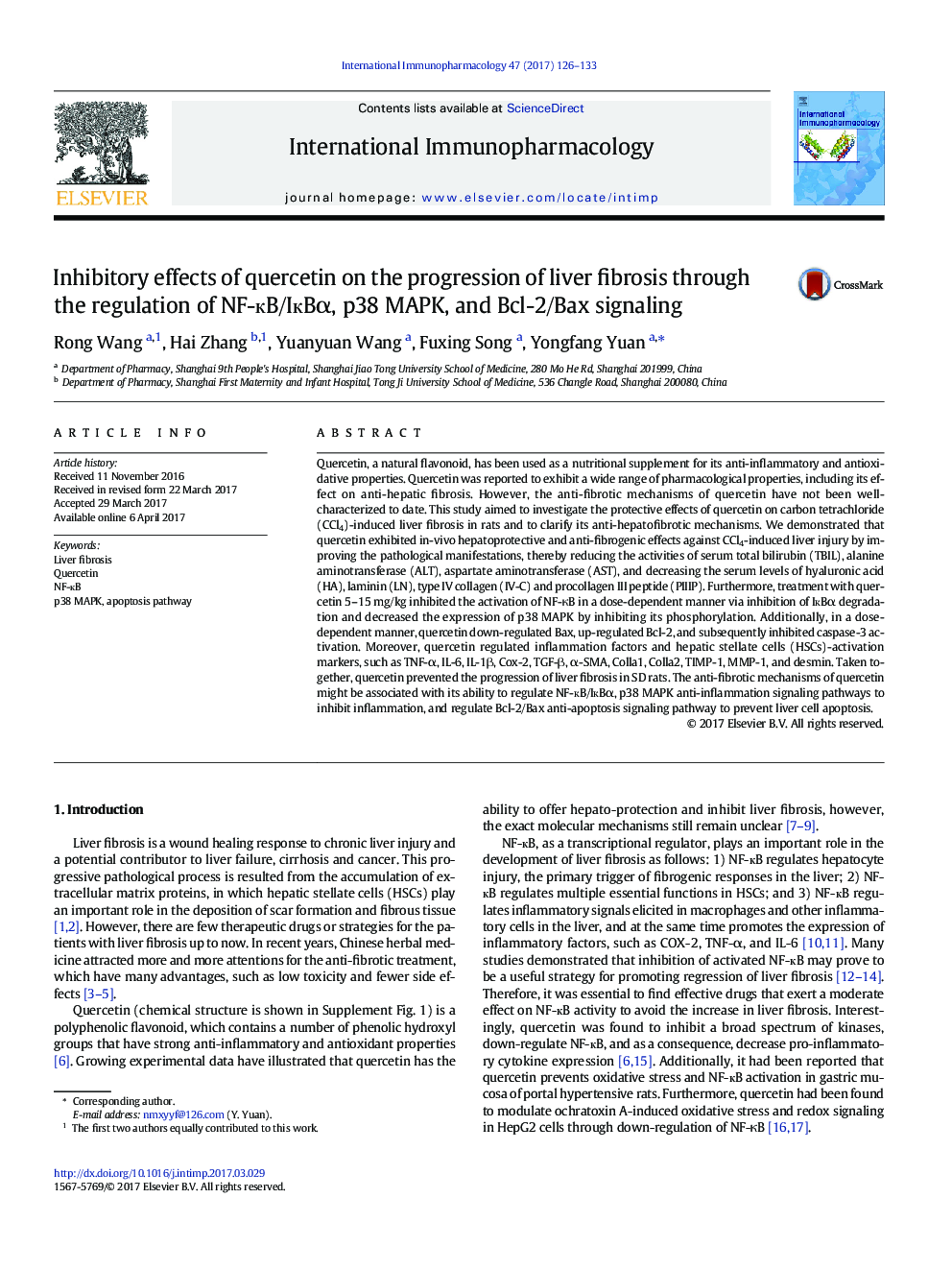| Article ID | Journal | Published Year | Pages | File Type |
|---|---|---|---|---|
| 5555502 | International Immunopharmacology | 2017 | 8 Pages |
â¢Quercetin possessed a therapeutic effect on CCl4-induced liver fibrosis in rats.â¢Quercetin played an anti-inflammatory role in anti-fibrotic process by regulating NF-κB and p38 MAPK signaling pathways.â¢Quercetin's anti-fibrotic effect is associated with Bcl-2/Bax anti-apoptosis signaling pathway.â¢Quercetin could regulate inflammation factors and HSCs activation markers to attenuate liver fibrosis.
Quercetin, a natural flavonoid, has been used as a nutritional supplement for its anti-inflammatory and antioxidative properties. Quercetin was reported to exhibit a wide range of pharmacological properties, including its effect on anti-hepatic fibrosis. However, the anti-fibrotic mechanisms of quercetin have not been well-characterized to date. This study aimed to investigate the protective effects of quercetin on carbon tetrachloride (CCl4)-induced liver fibrosis in rats and to clarify its anti-hepatofibrotic mechanisms. We demonstrated that quercetin exhibited in-vivo hepatoprotective and anti-fibrogenic effects against CCl4-induced liver injury by improving the pathological manifestations, thereby reducing the activities of serum total bilirubin (TBIL), alanine aminotransferase (ALT), aspartate aminotransferase (AST), and decreasing the serum levels of hyaluronic acid (HA), laminin (LN), type IV collagen (IV-C) and procollagen III peptide (PIIIP). Furthermore, treatment with quercetin 5-15 mg/kg inhibited the activation of NF-κB in a dose-dependent manner via inhibition of IкBα degradation and decreased the expression of p38 MAPK by inhibiting its phosphorylation. Additionally, in a dose-dependent manner, quercetin down-regulated Bax, up-regulated Bcl-2, and subsequently inhibited caspase-3 activation. Moreover, quercetin regulated inflammation factors and hepatic stellate cells (HSCs)-activation markers, such as TNF-α, IL-6, IL-1β, Cox-2, TGF-β, α-SMA, Colla1, Colla2, TIMP-1, MMP-1, and desmin. Taken together, quercetin prevented the progression of liver fibrosis in SD rats. The anti-fibrotic mechanisms of quercetin might be associated with its ability to regulate NF-кB/IкBα, p38 MAPK anti-inflammation signaling pathways to inhibit inflammation, and regulate Bcl-2/Bax anti-apoptosis signaling pathway to prevent liver cell apoptosis.
Graphical abstractDownload high-res image (130KB)Download full-size image
